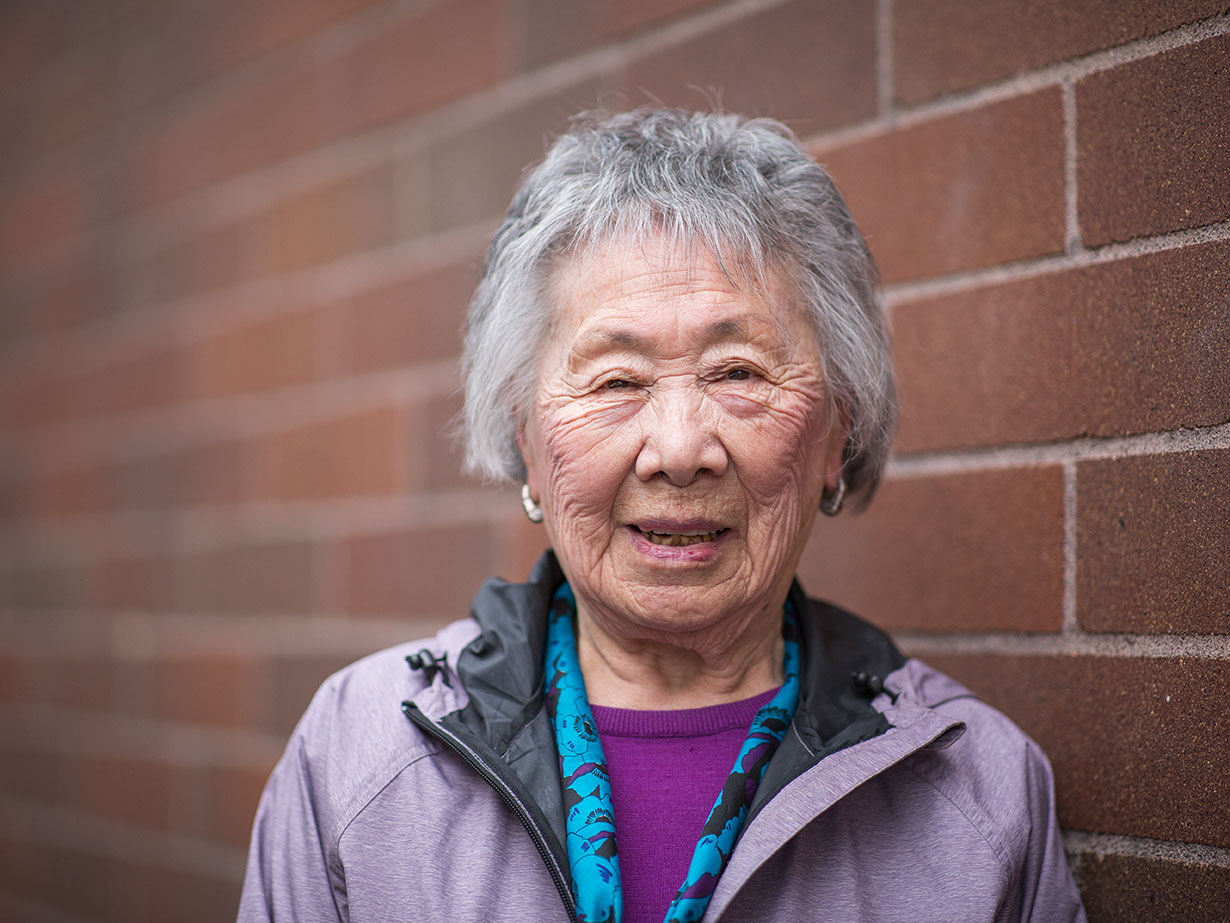For 98-year-old Bertha Lee Saiget, Portland’s Chinatown is more than a mark on a map or a tourist destination. Its history is her life, and she has borne witness to the Chinese community’s triumphs, tragedies, and evolution over time.
Saiget was born in Portland, Oregon, in 1925, the daughter of Chinese immigrants from Guangdong Province. Facing political turmoil, famine, and drought in their homeland, Saiget’s parents came to America in 1923. They saw the American West as a shining land of opportunity, calling it Gam Saan, or “Gold Mountain.”
“They kept on thinking of California, of Sutter when he discovered gold,” Saiget remembers. “They thought that they could still come over and make a better living. And they did; a lot of people did make money. My parents [hoped to] make a wonderful living and go back to China.”
The U.S., however, was a hostile place for Chinese immigrants. Due to rising anti-Chinese sentiment, Congress had passed the Chinese Exclusion Act in 1882, which banned all Chinese laborers from entering the country. To get around this, many young Chinese men, including Saiget’s father, entered the country illegally as “paper sons.” They bought false identification papers that claimed that they were the sons of immigrants who had obtained American citizenship. These men were then admitted into the country and were allowed to bring their wives with them.
“My dad had somebody’s illegal paper who was a citizen here,” Saiget recalls. “[My mother and father] both came together in 1923. They were [already] married.”
Saiget’s parents settled down in what is now Portland’s Pearl District. Her father worked as a baker at the Benson Hotel, and her mother was a housewife, raising Saiget and her seven siblings.
Saiget went to a school in Chinatown that taught all of its lessons in Chinese. “English is my second language,” she explains. “My parents had a vision of me returning to China after they had made all of the money and [we’d] live happily ever after, but that never happened.”
Even though Saiget went to Chinatown frequently as a child, she also felt isolated from it. She yearned to be where she felt like she truly belonged.
“Chinatown was very active,” she remembers. “A lot of my friends lived [there] in high-rise apartments upstairs, and they thought that where I lived, in a standalone house, [was] in kind of the ghetto area… We had a house all to ourselves. I wished I was there living in the tenement apartments, and I wished they had my house!”
Another specter that hung over Saiget’s childhood was fear about her parents’ immigration status. Since her father was a “paper son,” her family’s future in the United States was uncertain.
“They would never talk about it,” Saiget says. “I grew up in a shroud of secrecy. We knew the Chinese were not welcome because of all the immigration acts. All my life, [my parents] always had to say, ‘You have to behave because you’re Chinese, and the Chinese are not welcome here.’ And this is what we did, you know, not raising any red flags, listening to the teachers, doing well at school, and on and on.”
In 1943, when Saiget was in high school, Congress repealed the Chinese Exclusion Act. For the first time in over 60 years, Chinese people could immigrate to the United States and legally become American citizens.
Saiget recalls that her parents reacted very differently to the repeal of the Chinese Exclusion Act. Her father learned English and voted. “But, my mother never did,” she says. “She would wait every day to get her Chinese newspaper, and from the Chinese newspaper she would know about American politics.”
About six years after the Chinese Exclusion Act was repealed, Saiget started attending Oregon State College. There, she met her future husband, Robert, a Chinese American World War II veteran. Robert hailed from Astoria, Oregon, where his family had worked in the salmon industry for two generations. Saiget majored in home economics and taught high school in Oregon and southwestern Washington.
Around 1980, she and her husband went to China to visit her father’s village in Guangdong Province, embarking on a journey that her parents had hoped to achieve.
“My mother had given us addresses in Chinese,” Saiget says. “We found the village where the family had lived, though no one from the family was there. When we went to this one place, we looked on the wall, and there was a picture of our family there.”
Saiget hopes that her story will help future generations of Chinese Americans learn about and appreciate their past. In a country where the atmosphere is growing ever more volatile and where attacks on Asian Americans are becoming more common, she feels a responsibility to preserve, retell, and inspire pride in Chinese American history.
“I think that our country is more divided now,” she says. “But I would like future generations to know about the history of the Chinese that perseveres and their culture. The story needs to be told.”

